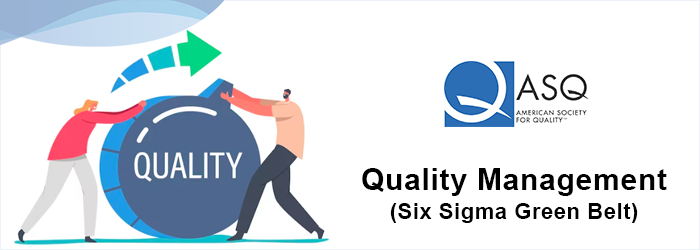

A sequential and linearly designed specialty that covers a more advanced level of Six Sigma subject. To increase quality assurance in your organisation, go deeper into tried-and-true ideas and technologies. Individuals who acquire the Green Belt certification gain advanced knowledge of Lean and Six Sigma processes. This certification qualifies you to join the team as a support player, allowing you to conduct analysis and resolve quality issues.
The latest edition of the Six Sigma Green Belt Body of Knowledge, published by ASQ in the United States, is totally aligned with this 5-day training programme. Its goal is to give the learner the tools and application awareness they'll need to finish a Lean Six Sigma Green Belt project effectively. Many process and application strategies are taught in class for improved understanding and implementation in the training programme.
Six Sigma Green Belt is Recommended For:
Prerequisites for obtaining the Six Sigma Green Belt Certification
Learning Objectives
Learning Objectives
Learning Objectives
Learning Objectives
Learning Objectives
Learning Objectives